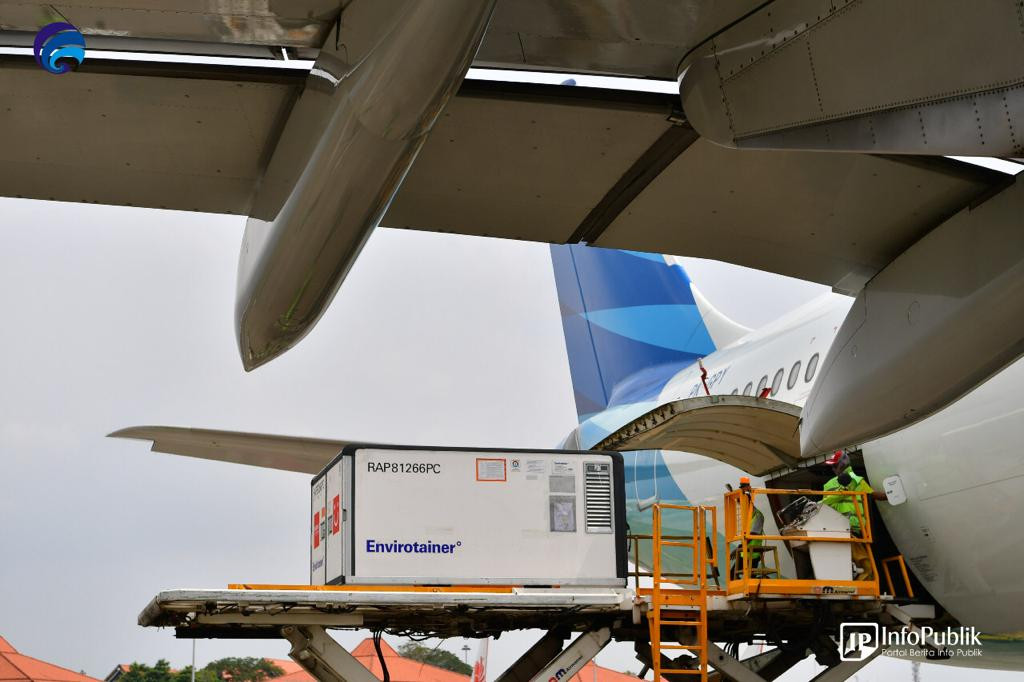Popular Reads
Top Results
Can't find what you're looking for?
View all search resultsPopular Reads
Top Results
Can't find what you're looking for?
View all search resultsMoody’s pegs 2023 for Indonesia’s herd immunity
Moody's Analytics says that Indonesia, along with four other countries in the Asia-Pacific, could fall far behind in its bid to achieve "herd resilience", with serious repercussions for economic recovery.
Change text size
Gift Premium Articles
to Anyone
I
ndonesia is projected to achieve significant resilience to the coronavirus pandemic only in early 2023 or later, finding itself among several Asia-Pacific countries that may be left behind as most countries look set to achieve this by early 2022, according to Moody's Analytics.
Moody's Analytics chief APAC economist Steven G. Cochrane said Indonesia, like other countries, was facing difficulties in procuring enough vaccines and accelerating its vaccination program. Those difficulties were causing delays in the country’s attempt to vaccinate at least 65 percent of the adult population to achieve “herd resilience”.
The firm prefers “herd resilience” to “herd immunity”, arguing that the latter was not feasible because the virus was constantly mutating.
The Philippines, Vietnam, Taiwan and Thailand could share the same fate as Indonesia, Cochrane said.
“Indonesia and the Philippines have been struggling to roll out vaccines due to lack of access, or simply [difficulty in] getting the vaccine through the public health system,” Cochrane told reporters on Wednesday during the firm’s webinar.
This situation, according to Moody’s, puts Indonesia’s economic recovery targets “at risk”, as the country was likely to face a prolonged struggle to contain COVID-19. It also expected that the government would impose additional mobility restrictions in response to a COVID-19 resurgence at some point.
Moody's assessment found that Indonesia was likely to lag behind other countries that were well on their way to fully recovering from the pandemic’s economic impacts.
Cochrane said economic recovery in each country was still very dependent on their individual success in curbing COVID-19 infections, so countries that quickly reached herd resilience had a better chance of maintaining and accelerating economic recovery.
Concurring with Moody’s assessment, Airlangga University epidemiologist Windhu Purnomo warned the government that Indonesia might reach herd immunity only in early 2023, much later than its stated target of late 2021 or early 2022.
Windhu said the government’s vaccination program was progressing slowly because of limited vaccine supply. Only some 27 million doses had been administered in the five months since February, far below the government’s initial target of a minimum 30 million jabs each month.
The risk was even greater, he said, as studies revealed that most vaccines only offered immunity for a period of six months to one year. If the government failed to vaccinate the vast majority of the population in time, then the earlier vaccinations would become moot, he said.
“If this continues, delays in [achieving] herd immunity will be inevitable. We might [not even] achieve herd immunity,” Windhu told The Jakarta Post on Wednesday.
Executive secretary I Raden Pardede of the COVID-19 Handling and National Economic Recovery Committee (KPCPEN) said he was aware of the concerns, but expressed confidence that the government could still reach its targets.
He added that the government would have at least 200 million doses of China’s Sinovac vaccine this year. It was also in the process of securing the Pfizer-BioNTech vaccine, which would increase its supply to between 275 million and 300 million vaccine doses.
The addition of a possible 50 million vaccine doses each through the Gavi and Novavax initiatives would bring the total to almost 400 million.
“Therefore, we will beat their [Moody's Analytics’] assumption, Raden told The Jakarta Post on Wednesday.
“Right now, our vaccination rate is 250,000 doses per day, but we will soon increase it to one million per day,” he said.










